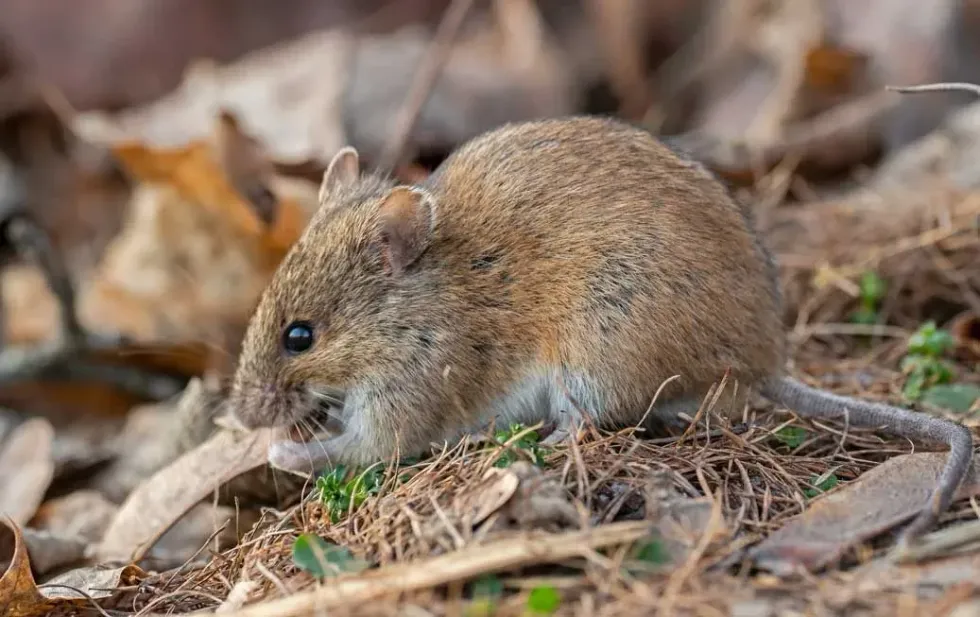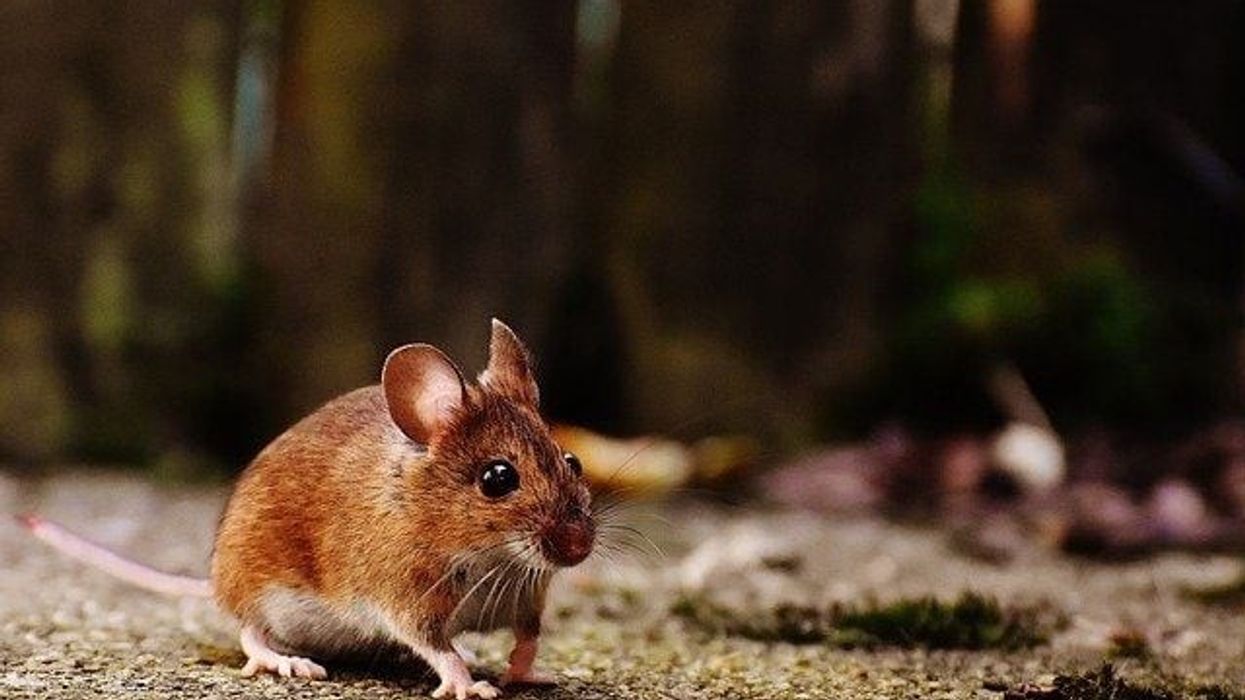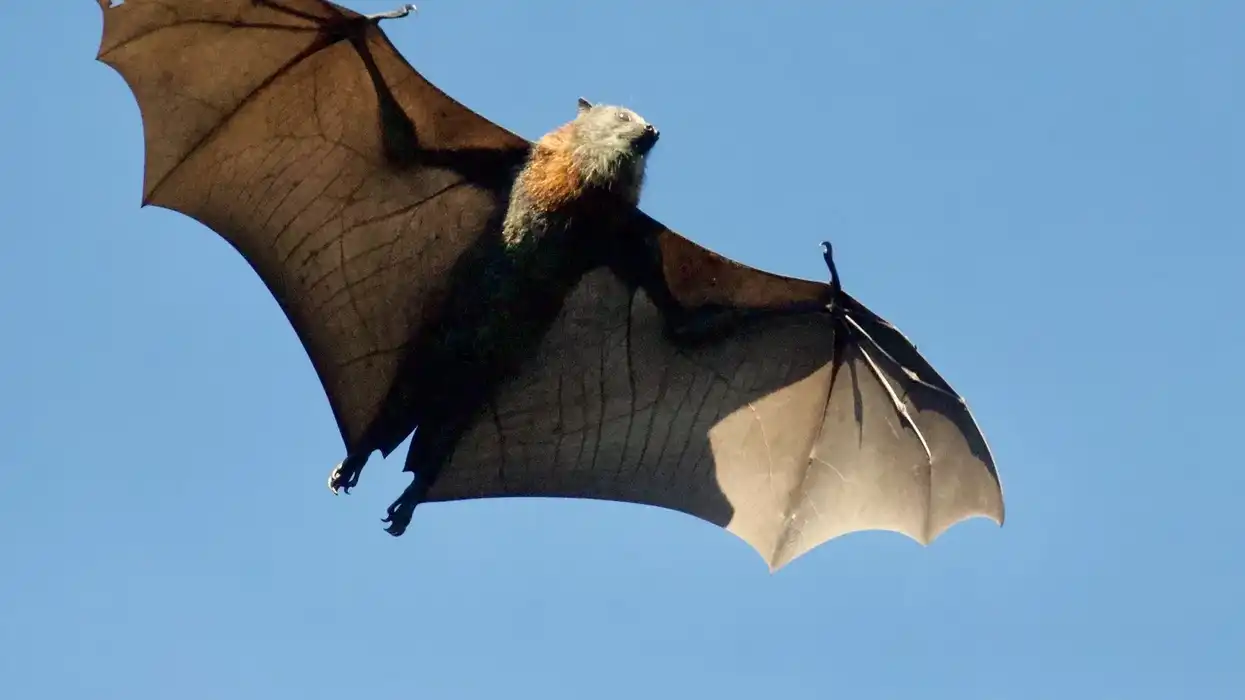The Ryukyu mouse or the ricefield mouse is a species of the Muridae family and the Mus genus.
It is abundant in forests, grasslands, and fields around human settlements in many Asian nations such as Japan, Thailand, Vietnam, and China. This mouse is a bit of a pest for farm-owners because of its history of living in paddy fields and stealing rice.
Like most species of mice, it lives close to human settlements but it does not live as close to them as the house mice does.
Ryukyu mice are almost completely nocturnal but are known to forage sometimes while the sun is out. Ryukyu mice have a history of occurring mostly in South East Asian territories, but not all of them.
Even though the life, history, and classification of this species of mammals have not properly been investigated, their conservation status is given as Least Concern by the IUCN, because of their clearly abundant populations.
Learn more about some other mammals including the degu or the paca here.
Ryukyu Mouse Interesting Facts
What type of animal is a Ryukyu mouse?
The Ryukyu mouse (Mus caroli) species is a mouse, a rodent.
What class of animal does a Ryukyu mouse belong to?
The Ryukyu mouse (Mus caroli) species belongs to the Mammalia (mammals) class of animals.
How many Ryukyu mice are there in the world?
Populations of the Ryukyu mice (Mus caroli) species have not been evaluated, so the number of these mice left in the world is uncertain.
Where does a Ryukyu mouse live?
Ryukyu mice (Mus caroli) live near human settlements, in fields and forests in the Asian countries of Cambodia, Indonesia, China, Japan, Malaysia, Laos, Taiwan, Vietnam, and Thailand.
What is a Ryukyu mouse's habitat?
The Ryukyu mouse (Mus caroli) species lives close to human settlements and forests and burrows into dry grass, crevices between rocks, cultivated areas, and sugarcane fields. Most commonly, this mouse burrows into the soil of the rice fields it inhabits and forages in here.
They may also inhabit nests underneath dead tree trunks or live on the forest floor itself.
Who do Ryukyu mice live with?
The Ryukyu mouse (Mus caroli) species tends to live alone, but they may also be found in groups sometimes.
How long does a Ryukyu mouse live?
A Ryukyu mouse (Mus caroli) is a mammal that has a life expectancy of around three years in captivity. In the wild, they have a typical life span of around 12-18 months.
How do they reproduce?
The Ryukyu mouse (Mus caroli) species reproduces throughout its short life by mating with a mouse of the opposite sex. The female gestates for around 21 days and gives birth to between two and 12 live young ones, usually six.
What is their conservation status?
The conservation status of the Ryukyu mouse (Mus caroli) species according to the International Union for Conservation of Nature is Least Concern.
Ryukyu Mouse Fun Facts
What do Ryukyu mice look like?
The Ryukyu mouse (Mus caroli), being of the same genus as the house mouse (Mus musculus) species, shares many biological similarities with it. The Ryukyu mouse has a brown back and a long tail.
It is 2.4-3.15 in (6-8 cm) long and weighs around 0.4 oz (11.2 g). It has creamy underparts and long, round ears. Also, the Ryukyu mouse has big eyes and incisor teeth.

* Please note that this is an image of a house mouse, not a Ryukyu mouse specifically. If you have an image of a Ryukyu mouse please let us know at hello@kidadl.com.
How cute are they?
The Ryukyu mouse (Mus caroli) is a very cute-looking species of animal. Its big eyes, lengthy tail, and large round ears, give it a pleasing appearance. It also has adorable small hands, a brown back, incisor teeth, and a creamy stomach, which makes it even more endearing. It is a very shy animal around any human company.
How do they communicate?
The Ryukyu mouse species communicates with each other by various means, like sounds, urine, body language, and grooming. They may squeak or use ultrasonic vocalizations and their urine has chemicals and pheromones in it that communicate messages. They also convey aggressiveness by wagging their tails and groom each other to convey friendship.
How fast can a Ryukyu mouse move?
A Ryukyu mouse may be able to run up to speeds of 8 mph (13 kph).
How much does a Ryukyu mouse weigh?
A Ryukyu mouse weighs about 0.4 oz (11.2 g).
What are their male and female names of the species?
Males and females of the Ryukyu mouse species are called 'does' and 'bucks' respectively.
What would you call a baby Ryukyu mouse?
A baby Ryukyu mouse may be called a 'pup' or a 'pinky' respectively.
What do they eat?
A Ryukyu mouse usually eats seeds, insects like grasshoppers, and invertebrates.
Are they poisonous?
No, a Ryukyu mouse is not poisonous, but they do tend to carry viruses and bacteria that cause diseases.
Would they make a good pet?
Although they may live close to human settlements, they would not make a good pet because they like to roam free and forage in fields and cultivations. The life of the Ryukyu mouse is characterized by burrowing and foraging alone.
Did you know...
The life of a Ryukyu mouse is synonymous with the rice fields it inhabits and burrows in. The soil that it loosens with its teeth is carried by the mouse in its mouth or pushed out by its hind legs.
The main threats to Ryukyu mice are being hunted by foxes and cats.
How active are they?
Ryukyu mice can be very active animals. They seek out shelter in plantations and fields often and are active foragers. They look for food at night, so they're much more active at night than during the daytime. Also, the Ryukyu mouse happens to be an excellent excavator and builds multiple nests throughout its life.
The Ryukyu mouse vs the house mouse
The scientific name for the Ryukyu mouse is Mus caroli, whereas the scientific name for the house mouse species is Mus musculus. They both belong to the genus Mus.
House mice are longer and heavier than Ryukyu mice. Their body length is 3–4 in (8-10 cm), excluding the tail, whereas Ryukyu mice are only 2.4-3.15 in (6-8 cm) long.
A house mouse is usually 1.4-1.6 oz (40–45 g) in weight, whereas the Ryukyu mouse is usually 0.4 oz (11.2 g) in weight. The house mouse is also a much more abundant species than the Ryukyu mouse.
The Ryukyu mouse species has a much longer life expectancy than the house mouse. The Ryukyu mouse lives about 12-18 months in the wild, but the house mouse, which has many predators, typically lives only for a year. Ryukyu mice are also expert burrowers, whereas the house mice aren't known for that skill.
Here at Kidadl, we have carefully created lots of interesting family-friendly animal facts for everyone to discover! Learn more about some other mammals from our nutria facts and squirrel facts pages.
You can even occupy yourself at home by coloring in one of our free printable Ryukyu mouse coloring pages.









